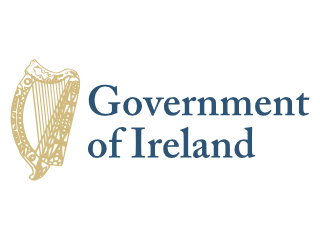Celtic tribes arrived on the island between 600 and 150 B.C. Invasions by Norsemen that began in the late 8th century were finally ended when King Brian BORU defeated the Danes in 1014. Norman invasions began in the 12th century and set off more than seven centuries of Anglo-Irish struggle marked by fierce rebellions and harsh repressions. The Irish famine of the mid-19th century saw the population of the island drop by one third through starvation and emigration. For more than a century after that the population of the island continued to fall only to begin growing again in the 1960s. Over the last 50 years, Ireland's high birthrate has made it demographically one of the youngest populations in the EU. The modern Irish state traces its origins to the failed 1916 Easter Monday Uprising that touched off several years of guerrilla warfare resulting in independence from the UK in 1921 for 26 southern counties; six northern (Ulster) counties remained part of the UK. Unresolved issues in Northern Ireland erupted into years of violence known as the "Troubles" that began in the 1960s. The Government of Ireland was part of a process along with the UK and US Governments that helped broker what is known as The Good Friday Agreement in Northern Ireland in 1998. This initiated a new phase of cooperation between the Irish and British Governments. Ireland was neutral in World War II and continues its policy of military neutrality. Ireland joined the European Community in 1973 and the euro-zone currency union in 1999. The economic boom years of the Celtic Tiger (1995-2007) saw rapid economic growth, which came to an abrupt end in 2008 with the meltdown of the Irish banking system. Today the economy is recovering, fueled by large and growing foreign direct investment, especially from US multi-nationals.
Ireland is a parliamentary republic.
Source: CIA World Factbook
Members:
Resources
Displaying 131 - 135 of 137Fisheries and Foreshore (Amendment) Act, 1998 (No. 56 of 1998).
The amendments of this Act to the Fisheries Acts, 1959 to 1997, the Foreshore Act, 1933, and the Fishery Harbour Centres Act, 1968 concern the granting of a foreshore licence for aquaculture purposes under the Act of 1933, or a fish culture licence under section 15 of Fisheries Acts, 1959 to 1997. These licences shall be deemed to an aquaculture licence granted under the Fisheries (Amendment) Act of 1997. Specific conditions are set out for the procedures of granting a foreshore licence deemed to be an aquaculture licence under the 1997 Act.
European Communities (Environmental Impact Assessment) (Amendment) Regulations, 1999 (S.I. No. 93 of 1999).
The purpose of these Regulations is implement provisions of Directive 97/11/EC relating to environmental impact assessment in Ireland. These Regulations contain amendments to the European Communities (Environmental Impact Assessment) Regulations, 1989 to 1998, and to provisions relating to environmental impact assessment in Local Government (Planning and Development) Acts, 1963 to 1998, and a number of other Acts.
Agriculture, Food and Rural Development (Delegation of Ministerial Functions) Order, 2001 (S.I. No. 147 of 2001).
This Order delegates to the Minister of State at the Department of Agriculture, Food and Rural Development the powers and duties of the Minister for Agriculture, Food and Rural Development under the Acts, Orders and Regulations specified in the Order. The Acts are the Land Bond Act, 1992 (No. 4 of 1992) and Western Development Commission Act, 1998 (No. 42 of 1998).
Wildlife (Amendment) Act, 2000 (Act No. 38 of 2000).
This Act provides for various matters relating to wildlife and forestry including: functions of the Minister for Arts, Heritage, Gaeltacht and the Islands, acquisition of land and rights, natural heritage areas, nature reserves and refuges, protection of flora, wild birds and wild animals, and regulation and control of wildlife dealing.
Land Registration Rules, 2000 (S.I. No. 175 of 2000).
These Regulations grant to the Registrar the right to dispense with the official examination of the title and to register the statutory authority with absolute title or good leasehold title on production of a certificate by the solicitor for such authority, subject to conditions and in circumstances as prescribed in regulation 4. The registration shall be as in Form 3 adapted as the case may require.
Amends: Land Registration Rules, 1972. (1972-10-02)


